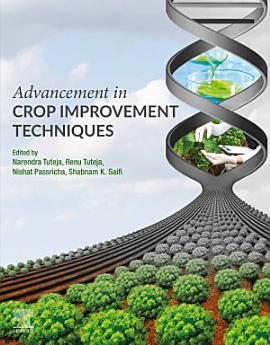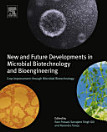Advancement in Crop Improvement Techniques
Tungkol sa ebook na ito
Tungkol sa may-akda
An elected fellow of numerous national and international academies, Dr. Narendra Tuteja is currently Professor and head at Amity Institute of Microbial Technology, NOIDA, India, and visiting Scientist at International Centre for Genetic Engineering & Biotechnology (ICGEB), New Delhi, India. He has made significant contributions to crop improvement under adverse conditions, reporting the first helicase from plant and human cells and demonstrating new roles of Ku autoantigen, nucleolin and eIF4A as DNA helicases. Furthermore, he discovered novel functions of helicases, G-proteins, CBL-CIPK and LecRLK in plant stress tolerance, and PLC and MAP-kinase as effectors for Gα and Gβ G-proteins. Narendra Tuteja also reported several high salinity stress tolerant genes from plants and fungi and developed salt/drought tolerant plants.
Renu Tuteja received her BS in Chemistry, Botany and Zoology from the University of Lucknow, India. She also received her MS in Biochemistry from the University of Lucknow, India. She did her Ph.D. in Chemistry at the University of Kanpur, India. She is presently National Officer and Group Leader for Parasite Biology at the International Center for Genetic Engineering and Biotechnology (ICGEB), in New Delhi India.
Dr. Nishat Passricha, International Centre for Genetic Engineering and Biotechnology (ICGEB), has worked on Lectin receptor like Kinase: a boon for salt stress tolerance in rice during his Ph.D. He has attended more than 10 conferences in India and abroad and presented his research papers. He has more than 10 research papers in reputed journals with high impact factor. After completing his Ph. D. he is working as postdoctoral researcher at International Centre for Genetic Engineering and Biotechnology (ICGEB), New Delhi.








